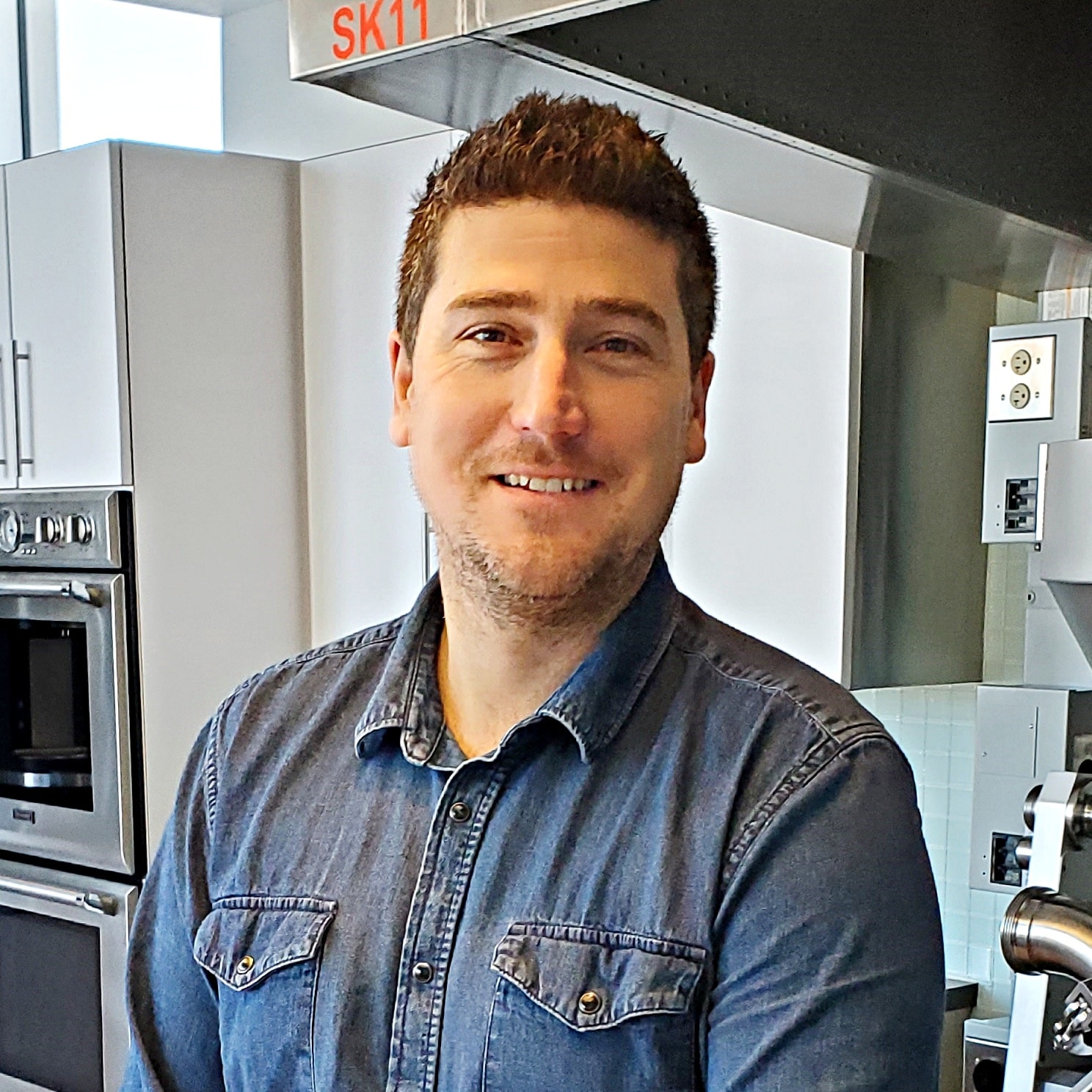Shawn MacDougall
Holland College
Shawn MacDougall, Director of Applied Research at Holland College in Prince Edward Island, leads all research activities across 60+ programs. Shawn is responsible for the college’s strategic and long-term approach to advancing innovation activities across all Holland College campuses. Shawn graduated from the University of Prince Edward Island with a Master’s Degree in Environmental and Analytical Chemistry in 2010 and spent time with Veteran’s Affairs Canada’s Strategic Initiatives group before joining Holland College’s Applied Research office 10 years ago. (Applied Research website here)
What did you do before coming to Holland College?
I completed a Bachelor of Science Degree with a chemistry major with a minor in business administration at the University of Prince Edward Island (UPEI).
After that I did a master’s in environmental and analytical chemistry. After completing that degree, I decided that I no longer wanted to be working in a chemistry lab. Rather, I wanted to be on the outside, helping to bring value to those still in the lab, not just in chemistry, but all disciplines. I spent some time doing statistical analysis with Veteran’s Affairs Canada before landing a position here at Holland College.
And when did you officially join the Springboard network?
I moved into this role as Springboard’s Phase 4 was ending. I was familiar with Springboard as my initial responsibilities were to support Holland College’s previous Industry Liaison Officer with special projects, research proposal writing and developing marketing materials.
Over the past number of years, my role has morphed at the college considerably after our previous director of applied research left for another opportunity and I assumed those responsibilities.
How is the research process different in a college?
Initially, because Holland College was still relatively new to applied research, I spent a lot of my time introducing faculty and students to the premise of conducting research within a college environment. Raising awareness to the significant supporting partners that exist to facilitate college-industry partnerships was a major part of my daily responsibilities.
I introduced faculty to different funding agencies, industry associations and attended many different events to help develop new partnerships with industry. This was instrumental in building the foundation that is needed in order to tie industry more closely with the college.
What do you think the value is in doing applied research in a college setting?
It gives the student the opportunity to think and apply knowledge differently. For example, in our Culinary Arts program, most of the graduates are expected to work as a chef at a restaurant setting. Introducing those Culinary students to applied research through industry sponsored projects and suddenly, we’re opening the door to new avenues like product development, sensory science, recipe creation and food styling. There are so many new opportunities that come when you expand outside the normal curriculum.
It also results in more highly skilled students upon graduation. Working on applied research projects better prepares them for the workforce as they gain critical thinking and other intangible traits that might not be directly taught in the scope of their program.
What role has Springboard played for you at the college?
It’s been 100% education based.
There’s really no school or program that prepares you for this position. So, having the ability to lean on other people to understand funding and IP and contracts really saved me when I first started. Having folks just to bounce ideas off, or being able to call up someone, at UNB for example, to ask a question, or even connecting with other colleges to see their best practices has been invaluable.
Also, there’s a lot of training and professional development that Springboard organizes that I would not likely have taken the initiative to do if it was just me at the college. So, the fact [Central Office] can organize things like training sessions for an entire group of people is helpful.
Can you talk more about the benefits of being a part of the Springboard network?
There are several benefits. It allows us to maintain close relationships with industry and keeps us aware of industry trends.
Springboard is excellent at advocating for solutions to sector challenges. For example, look no further than what was accomplished with the “Lobster Food File”. Springboard Central Office organized sector roundtables from each Atlantic province and compiled those learnings into a big event in Truro. This is truly a powerful way of crowd sourcing solutions from the expertise that exists within the network.
Springboard could do that for various sectors and tackle industry wide challenges with the ability to organize researchers from all the Atlantic universities and colleges. That has tremendous value for the Atlantic economy in terms of growing SME’s and growing awareness of our region. Because, at a smaller institution, it’s just me here and the reach is limited, but with Springboard Atlantic, which is constantly in front of people and industry promoting the skillsets that each college and university has, it amplifies that small impact through Atlantic-wide promotional mechanisms.
What motivates you in this work?
I love the variety of different programs I interact with on any given day. I could be in a kitchen at Canada’s Smartest Kitchen or knee deep in a stream with faculty from our Environmental Applied Science program. It’s a wide variety of programs we have at the college, spanning many different sectors and I love the fact that I get to interact with chemists and biologists and wildlife conservationists and welders and machinists (to name a few) daily.


